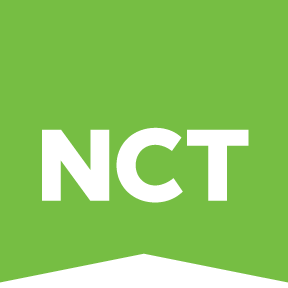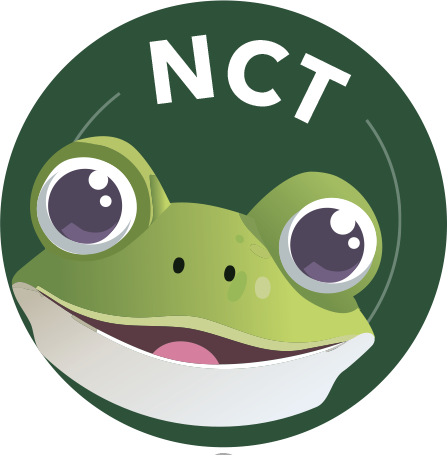Differences Between EnterpMountains of paperwork and streamlining workflows is a constant battle for many health and human services agencies. Health and human services departments looking for a solution will find that both Enterprise Content Management (ECM) and Case Management Systems (CMS) provide potential solutions — but understanding the key differences between these systems is crucial for improving your efficiency and better serving your communities. Each of these platforms serves its own purpose and each provides human services organizations with its own set of benefits — and they can work together to help your program become more efficient and effective.
NCT CaseWorks is an innovative enterprise content management platform that was developed for health and human services programs and can seamlessly integrate with your case management system. This powerful combination enhances case management by providing a secure central hub for all case-related documents, streamlining workflows and boosting overall agency productivity. Here is a better look at the key differences between Enterprise Content Management and a Case Management System.
What Is Enterprise Content Management?
Enterprise Content Management (ECM) platforms act as the central nervous system for your agency or program’s documents and provides an impressive list of benefits. Imagine a secure, virtual filing system that goes far beyond basic document storage. Enterprise content management platforms organize your documents, from client case files to internal policies, ensuring everything is easy to find and retrieve when you need it.
A quality ECM platform protects sensitive information with access controls and encryption, safeguarding client privacy and adhering to compliance regulations and it provides detailed document logs, tracking who accessed what document and when, creating an atmosphere of transparency and accountability. In addition — ECM standardizes document processes, eliminating the chaos of version control and ensuring everyone works with the latest case files. A comprehensive ECM platform like NCT CaseWorks is a game-changer for health and human services programs, streamlining workflows, improving client service, and providing your team with the ability to focus on what matters most.
“You can easily work between editions, which is helpful for a small county where we have overlap with workers processing multiple programs.”
Human Services Representative
Filmore County, Minnesota
What Is a Case Management System?
A case management system has the ability to elevate your health and human services program with an impressive list of tools. This powerful platform acts as a central hub, seamlessly integrating five key functions — case intake, management, reporting, workflow, and access.
The benefits of a case management system are substantial. Caseworkers can efficiently manage complex client cases, track progress, assign tasks, and collaborate effectively with your peers. Reporting features demonstrate program effectiveness and secure funding for continued services. Automated workflows ensure consistency and prevent errors, while secure access controls safeguard client privacy and meet compliance regulations. A case management system empowers your program to deliver exceptional client care, improve operational efficiency, and achieve better outcomes for the individuals and families you serve.

How Does Enterprise Content Management Benefit Case Management?
Enterprise Content Management (ECM) and Case Management systems, while distinct, are different sides of the same coin and form a powerful partnership for health and human services programs. ECM acts as a secure central repository for all case-related documents, from intake forms to progress notes. This eliminates the chaos of scattered files, ensuring important client information is readily available to caseworkers and social workers when they need it most. Case management then takes center stage, guiding the client’s journey through defined workflows and tasks. With seamless integration, caseworkers can access relevant documents directly within the case management system, streamline workflows and reduce wasted time. This translates to improved client service as caseworkers can focus on client needs, not file searches.
| Enterprise Content Management (ECM) | VS | Case Management System (CSM) |
| ECM improves efficiency around documents, automating data entry, document storage, and document routing. | Improved Efficiency | Case Management Systems help automate workflows, improve collaboration, and keep digital records to help make you more efficient. |
| Allows you to restrict users and co-edit secure documents with peers. | Improved Collaboration | Automated workflows allow for greater collaboration and an improved continuum of care. |
| Creates an audit trail for online documents that allow you to be more transparent and accountable. | Improved Transparency and Accountability | Creates a collective and central view of client progress and interactions for care providers. |
| Secure document storage protects sensitive client information to ensure you remain compliant. | Improved Compliance | Provides a comprehensive overview of access controls and logs to remain compliant. |
READ MORE: What Is the Biggest Challenge of Social Work?
Understanding the differences between Enterprise Content Management (ECM) and Case Management Systems (CSM) is crucial for optimizing your health and human services operations. Each platform offers significant benefits, but they specialize in different areas. ECM excels at managing all your content and documents, ensuring it’s readily available, while case management systems orchestrate specific client cases through defined workflows.
The real power lies in how they work together and benefit the client. NCT CaseWorks — developed by NCT Inc. — is a prime example of an ECM platform, specifically designed for health and human services, that will integrate with case management systems to benefit clients. Contact NCT Inc. today to learn how NCT CaseWorks can benefit your human services program!rise Content Management (ECM) and a Case Management System (CMS)






